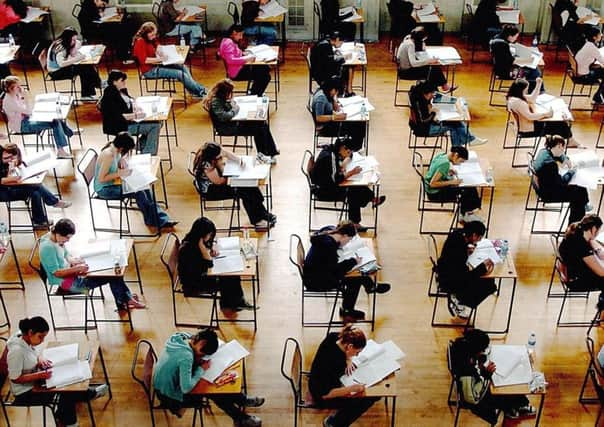Penalties for teachers who help exam cheats more than double


Ofqual is consulting on how to reduce the risks after a series of high-profile allegations at public schools including Eton and Winchester College. In new figures, it emerges the number of malpractice penalties issued at state schools to students after last summer’s exams is up 25 per cent, with more than a third of cases involving access to a mobile phone. And, it emerged, the number of penalties issued to school or college staff has risen 149 per cent.
Suzanne O’Farrell, of the Association of School and College Leaders, said: “It is disappointing that there has been an increase in the number of students and staff penalised over exam malpractice. However, these figures represent a very small proportion of students and staff, and the vast majority of people follow the rules correctly.
Advertisement
Hide AdAdvertisement
Hide Ad“It appears that the increase in the number of penalties issued to staff appears to be driven largely by exam boards being more likely to issue formal written warnings this year over breaches which may have previously been dealt with by informal advisory notes.”
As revealed by The Yorkshire Post last June, more than 8,000 university students have been caught cheating in exams and coursework over the last five years in the region.
Malpractice covers anything that could “undermine the integrity of an exam”, regulator Ofqual said. The new figures, covering GCSEs, AS-levels and A-levels taken in England last summer, show that 2,715 penalties were issued to students, while 895 were given to staff. Of staff, nearly half of all penalties were issued for maladministration of exams, while a third were issued for giving improper assistance to candidates.
On written warnings given to staff, a spokesman for the Joint Council for Qualifications, which represents exam boards, said: “The awarding bodies have considered the appropriateness of advisory notes and in some cases these have been replaced by sanctions, including written warnings. This has resulted in an increase in written warnings to school and college staff in 2017.
Advertisement
Hide AdAdvertisement
Hide Ad“It is important to note that the vast majority of students and staff abide by the regulations and, with 5,000 schools and colleges and over 18 million GCSE and GCE papers taken, the number of those breaking the rules is very small.”
Last month, Ofqual said exam safeguards should be “strengthened” in its review of rules allowing teachers to set question papers. In a report, published in the wake of exam leak allegations, the watchdog said cheating is rare but can be “deeply damaging” to public confidence when it happens. A package of safeguards is set to be published this month.
A Department for Education spokesperson said: “The public must have confidence in the integrity of the exam system and these statistics show the overwhelming majority of pupils and teachers are handling exam materials appropriately.
“Raising academic standards in our primary and secondary schools is the driving force behind the Government’s education reforms. Ofqual, the exams regulator, is key to ensuring the integrity and the standards of our public exam system, taking action where malpractice is identified.
“That is why Ofqual is also currently reviewing teachers’ involvement in developing exam papers to ensure there are sufficient safeguards in place to reduce the risk of any conflict of interest.”